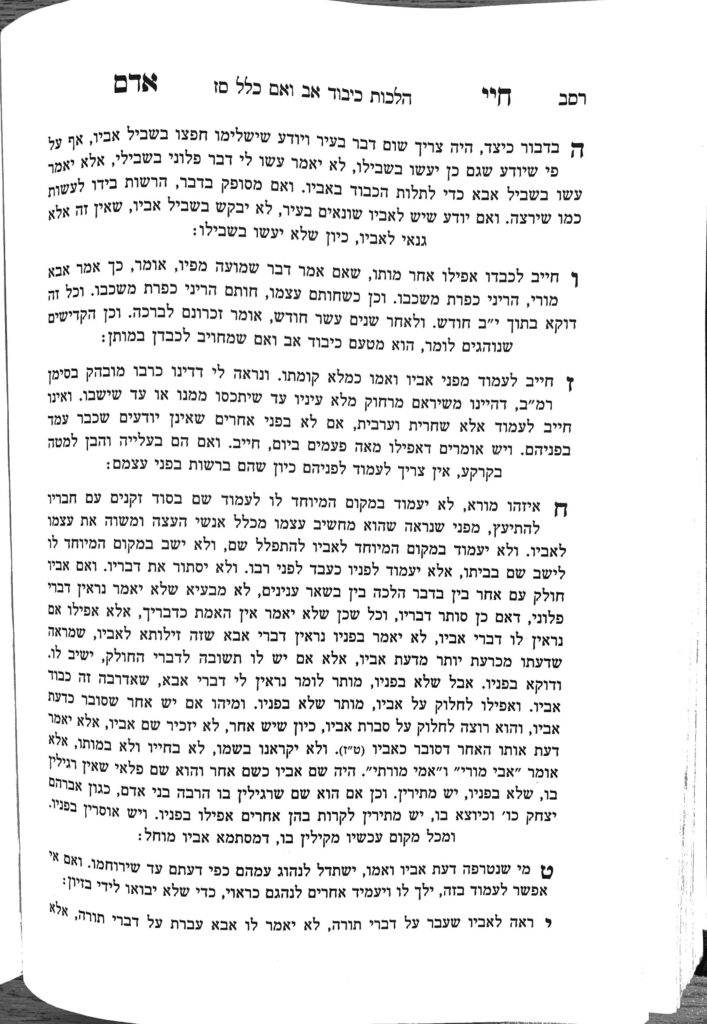We are continuing in siman 8, where the Chayei Adam discusses the parameters of morah. We left off discussing calling parents by their first names. The Chayei Adam writes that one may not call their parents by their first names. The issue arises, however, when another person asks a child for their parents’ first names. The Chayei Adam writes that one may say their parents’ names, provided they precede the name with a title such as avi mori or reb. In general, if one needs to recite their parent’s name, even without being asked, one may do so if they add a title before the name. The Gemara gives an example of Rav Yosi Bar Chalafta, who would precede his father’s name with the title abba.
Rav Moshe discusses whether one must precede the name by the title, or whether they can say the name first. He learns from an implication in the Gra that it is sufficient to add the title after their parent’s name.
The Chayei Adam discusses two scenarios. The first is a child who wishes to address someone who has the same name as their father in the presence of their father.
If the father is present, and it is a common name, one may say the name even in their father’s presence. The Chayei Adam writes that although some are machmir, the minhag is to be meikil. Certainly, if one receives mechila from their father it is muttar.
One cannot obtain mechila from their parents to call them by their first names, because it is a lack of morah, so mechila does not help. However, over here, the issue is not a lack of morah, but a possible misunderstanding. Therefore, although it is not necessary, mechila can certainly help.
The second scenario discussed by the Chayei Adam is when a child is not in the presence of their father, but their father has a unique name such that when the child says the name, people may think the child is referring to their father. As long as the father is not present, one may say the name in order to call the other individual. However, if the father is present, one may not say the name.
Summary
- A child should not refer to their parents by their first names, unless they precede or follow the name with a title, such as avi mori, abba, or reb. Even that only helps when there are talking about their parents, but not when they are addressing the parents.
- A child who wishes to address someone who has the same name as their father in the presence of their father may do so, provided the name is not unique enough that others perceive that the child is addressing the father.
- If the name is unique, the child may not address the other person in the presence of their father, but may do so when their father is not present.



